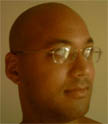A "Put Option" is a bet that a stock will fall...
Terrorist trade probe widens
Options buying rose in firms that attack affected
By Robert Manor and Melissa Allison
Tribune staff reporters
Published September 19, 2001
Securities regulators around the world are investigating whether the terrorists involved in last week's attack profited in financial markets, possibly by buying options on the stock of United Airlines, Boeing, American Airlines and other companies in the knowledge that prices would fall.
Traders say a suspiciously high volume of preattack options trades in AMR Corp., parent of American, and UAL Corp., United's parent, in particular, yielded huge profits after terrorists crashed aircraft belonging to the two airlines into the World Trade Center and the Pentagon.
The Chicago Board Options Exchange said Wednesday it is investigating options trading prior to the attack.
Sources familiar with the matter said the Securities and Exchange Commission is also investigating whether terrorists traded options or other financial instruments to capitalize on the calamity they were planning.
One Chicago trader said the big increase in options trading is evidence that some people knew about the coming disaster.
"Somebody knew about it, whether it was a broker or somebody who knew these guys, or it's one of these terrorist cells," said Jon Najarian, founder of options specialist Mercury Trading in Chicago.
If investigators turn up evidence the terrorists meant to profit by the drop in stock prices, it could be useful in identifying those behind the attack and disrupting their sources of money, experts said.
The Foreign Terrorist Asset Tracking Center, a task force made up of the CIA, FBI, Treasury Department, Secret Service and IRS, was set up several days ago to expose the financial holdings of Osama bin Laden and other terrorists. The task force "is collecting this information for the purpose of identifying the various sources of funding these organizations are receiving," said one Treasury official, on condition of anonymity. "It takes a significant amount of capital to organize these attacks."
In any case, someone was buying extraordinarily large numbers of a financial instrument called put options in the days before the attack.
Put options give the buyer the right to sell a stock at a fixed price by a certain date. People buy put options, known as puts for short, in the belief a stock's price is about to fall. Most puts expire after 90 days, so an investor typically buys them shortly before he expects the stock's price to drop.
Put options in United, Boeing and American all grew in value when the stock market reopened Monday because stock prices of the three companies fell dramatically. United, for example, fell $13.32 during the day.
On Sept. 6, put volume on United Airlines was 3,150, more than four times its average daily put volume this year, according to data from the Options Clearing Corp. Put volume for Boeing on Sept. 7 totaled 27,294, more than five times its average daily put volume this year.
The day before the attacks, put volume on American Airlines stock was 4,516, nearly 11 times its average daily volume for the year.
The insurance industry, also expected to be hard hit by the effects of the terrorist attacks, saw similar plays on its put options. Citigroup, which has a large insurance arm, and insurance broker Marsh & McLennan Cos. experienced extraordinarily high put volumes just days before the attacks.
Overseas, regulators were said to be investigating trades in reinsurance companies, those that underwrite the exposures of insurance companies and may have to pay big claims stemming from the attacks.
Buyers made millions
Buyers of the puts made huge sums of money. Najarian, the Chicago trader, noted that 1,535 puts purchased the day before the attack "gave the buyer the right to sell 153,500 shares at $30." When American's stock price fell, the owner of those puts gained $1.7 million.
Many millions of dollars would have been made on similar puts at exchanges here and elsewhere.
The Boeing put volumes did not ring alarm bells at the Chicago Board Options Exchange, because large institutional clients sometimes place orders that big, said Michael Hoban at ZH Partners JV, the specialist for Boeing at the CBOE. "In retrospect, it makes you think back, that maybe it was something linked to [the attacks]," Hoban said. "Let the investigators determine that."
At the Tribune's request, Chris Johnson, managing quantitative analyst with Schaeffer's Investment Research, examined the big jump in American's put options on the day before the attack.
"We saw an increase of 73 percent in one trading session before the day of the incident," Johnson said. "That is significant."
Some experts suggest that bin Laden, if he is behind the attacks, may also have motivation to try to profit from them.
bin Laden advisers
Although bin Laden is known to be rich--he inherited $80 million at the age of 13 and operates dozens of businesses in the Middle East and Africa--anti-terrorist analysts doubt that he can by himself finance a global campaign against the U.S. "He has got some very astute and adept people working for him," said Steven Emerson, head of the Investigative Project, a counterterrorist research institute in Washington. Emerson said bin Laden has access to accountants and other advisers capable of putting together an assault on the world's financial markets.
Associates of bin Laden have carried out sophisticated financial crimes in the past. After the 1993 bombing of the World Trade Center, investigation showed bin Laden and others in the Middle East had made an estimated $100 million a year through consumer coupon fraud.
Ben Jacobson, CEO of the investigative consulting firm Peregrine Group, testified before Congress about the fraud. He said people associated with bin Laden ran an extensive operation stealing coupons offering discounts on groceries and other items and returning them to clearing houses for reimbursement.
Copyright © 2006, Chicago Tribune


0 Comments:
Post a Comment
<< Home